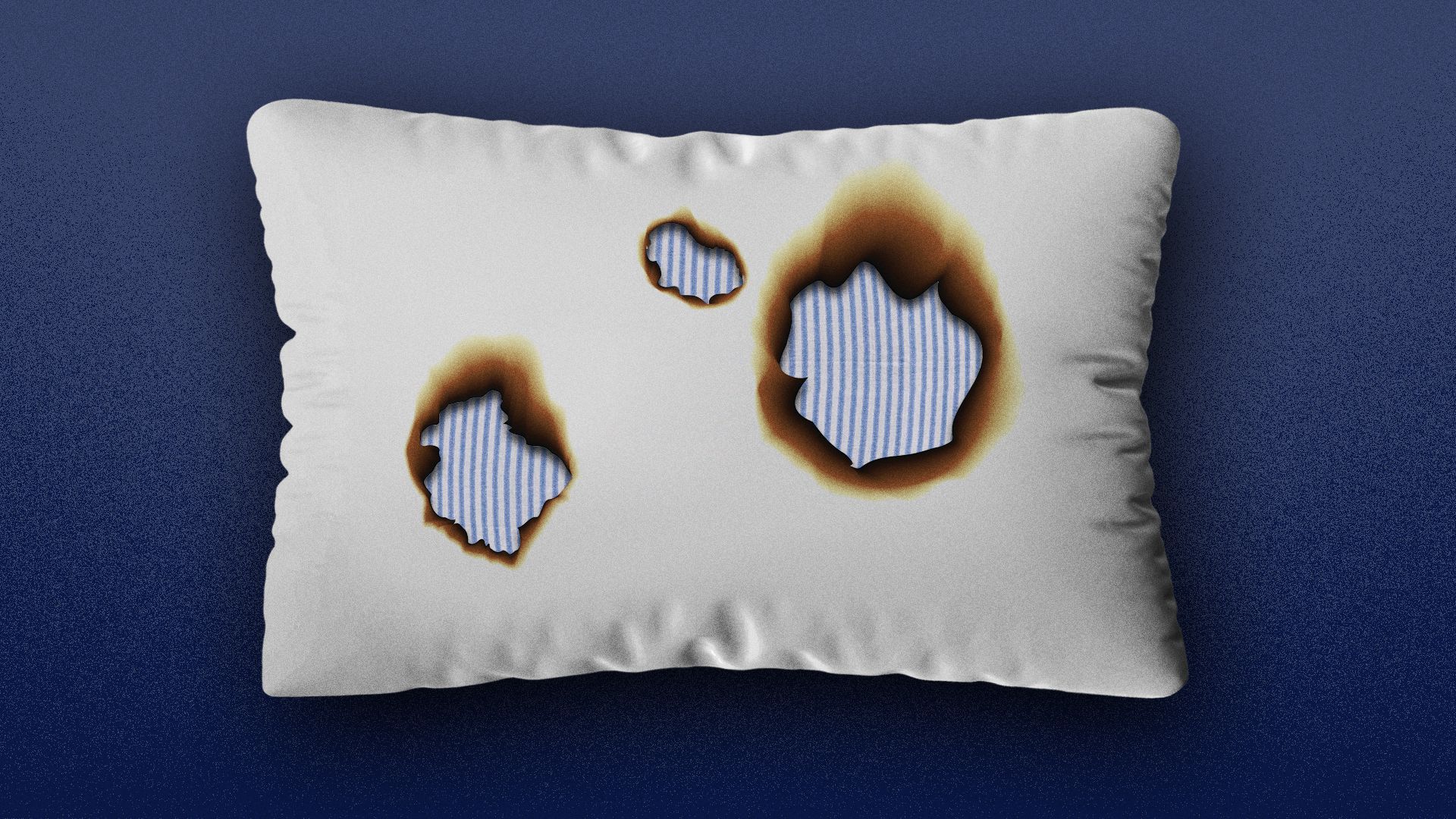Extreme heat is cutting into our sleep time
Add Axios as your preferred source to
see more of our stories on Google.

Illustration: Maura Losch/Axios
Rising temperatures are chipping away at our sleep time, according to a study of global trends.
- Beth Ann Malow, director of the sleep division at Vanderbilt University Medical Center, tells Axios the cascading effects of less sleep could put us at greater risk of high blood pressure, heart disease and obesity.
Why it matters: Malow, who reviewed the research conducted by other scientists, says it shows how climate change affects our personal health in ways that can be hard to grasp.
- "It's hitting home for a lot of us," Malow says.
- "That's really important. Because otherwise, it seems like this very esoteric thing that's affecting polar bears but isn't really affecting us."
Driving the news: Record-breaking heat waves have dominated summer forecasts worldwide.
- In Nashville, high temperatures have remained largely above 90°F for weeks.
- Last week, WPLN reported this summer is in line to be Nashville's second-hottest on record.
What's happening: Excessive heat can inhibit sleep in multiple ways, Malow says.
- It can stand in the way of activities like neighborhood walks and exercise that promote healthy sleep habits.
- It can also make it harder to fall asleep, since our bodies need to cool down as we doze.
For example: There is medical evidence that fevers or hot flashes can inhibit sleep, Malow says. The same principle holds when the environment heats up.
- "Anything that causes us to be excessively hot or, on the other hand, excessively cold can interfere with sleep," Malow says.
The intrigue: Less sleep increases the risk of chronic health problems. It also modifies our brain function, lowering our impulse control, making us more irritable and undercutting our decision-making.
The big picture: Social determinants of health, such as income, heavily factor in who's most at risk as heat waves increase in intensity and frequency, Axios' Arielle Dreher reports.
- The sleep study, released earlier this year, found the impact is more pronounced for people in places with less access to air conditioning and other cooling measures.
